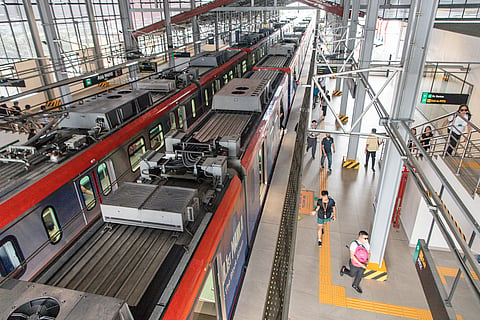
- NEWS
- the EDIT
- COMMENTARY
- BUSINESS
- LIFE
- SHOW
- ACTION
- GLOBAL GOALS
- SNAPS
- DYARYO TIRADA
- MORE

Malacañang announced on Sunday that the government will bolster public transportation services in response to a three-day jeepney strike set to begin today, 24 March.
Palace Press Officer Claire Castro told reporters that Transportation Secretary Vince Dizon has ordered the deployment of additional buses along the EDSA Carousel route, as well as increased operations for the MRT-3, LRT-1 and LRT-2 train lines.
Dizon said that the Metropolitan Manila Development Authority (MMDA) will provide free rides in affected areas to mitigate the impact of the strike.
The transport group Manibela announced the strike as a protest against what they claim are inaccurate consolidation figures under the government’s Public Transport Modernization Program (PTMP).
The Land Transportation Franchising and Regulatory Board (LTFRB)has maintained that the nationwide consolidation rate for public utility vehicles has reached 86 percent following the deadline for applications.
However, a transport group leader has accused the LTFRB of falsifying consolidation data, alleging that many jeepney operators who participated in the program’s consolidation process were misled.
Dizon urged the transport group to engage in dialogue with the new leadership of the Department of Transportation (DoTr) to collaboratively address transportation issues.
The DoTr is the mother agency of such units a the LTFRB and the Land Transportation Office.
“We appeal to our fellow countrymen who are already struggling with daily commuting — we hope that instead of striking, they could engage in a conversation first so that the new leadership in the DoTr can understand their concerns,” Dizon said.
The planned strike has already led to class cancellations, with several schools and universities opting to shift to online classes due to the expected shortage of jeepneys and potential traffic congestion.
The PUVMP dates back to the Duterte administration and aims to replace aging jeepneys with safer, more environmentally friendly units.
The program mandates the consolidation of operators into cooperatives or corporations to streamline fleet management and improve services.
While the government asserts that modernization enhances commuter safety and reduces emissions, transport groups argue that the high cost of modern vehicles burdens small operators, forcing many out of business.
